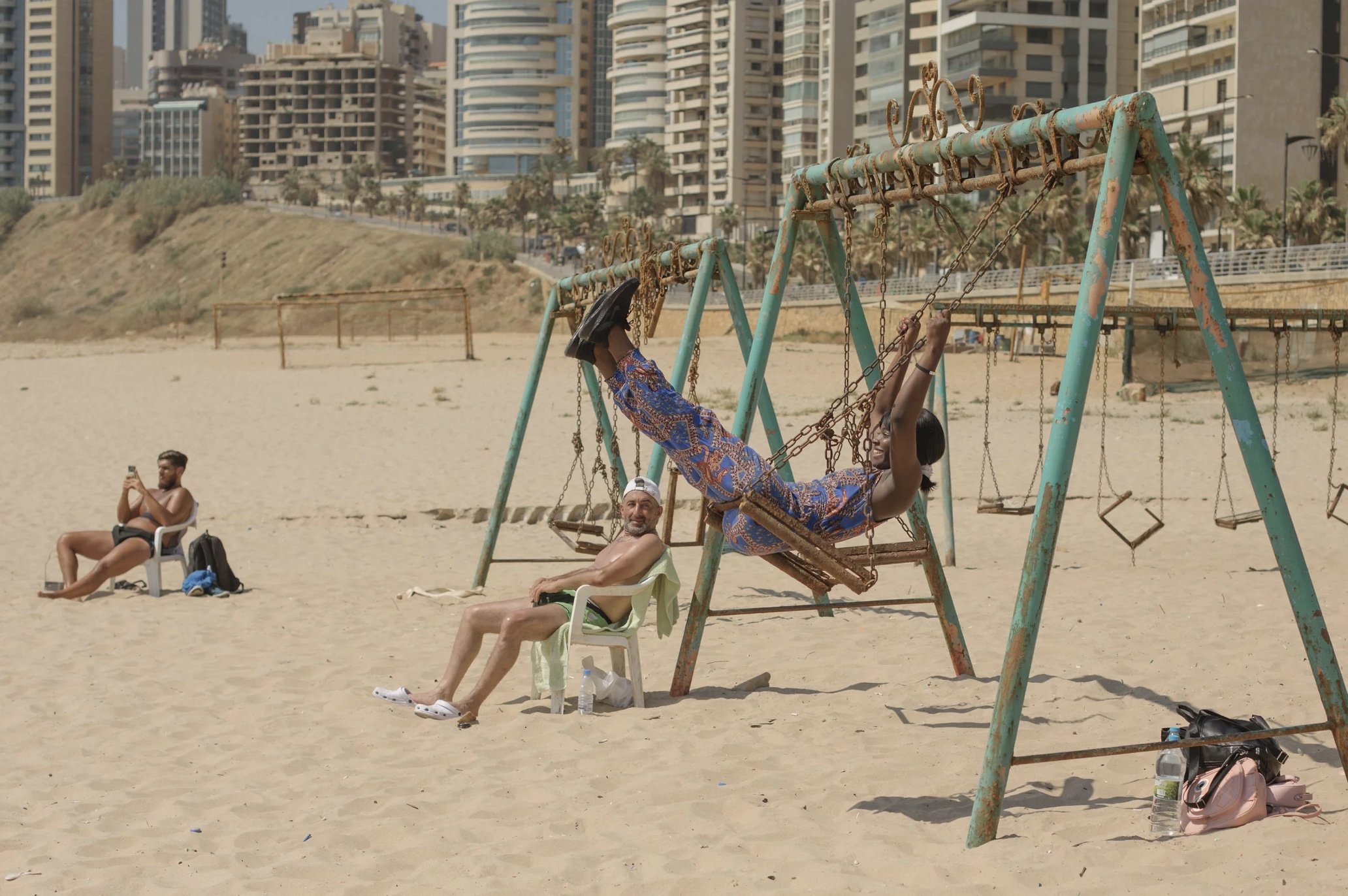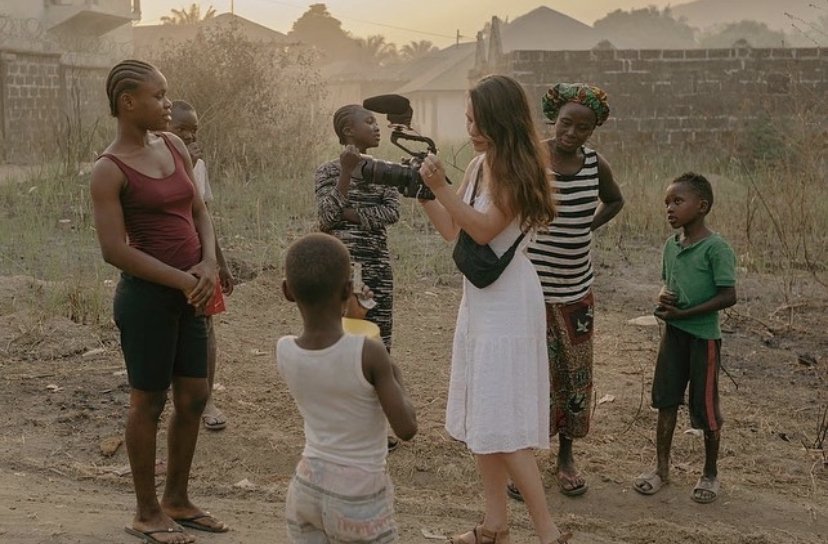Spotlight: Aline Deschamps on the Power of Photography
Thai-French photographer Aline Deschamps speaks about the impact that photography can have whilst documenting social injustice in the Middle East, Europe and beyond.
Images from Aline Deschamps’ ‘I Am Not Your Animal’ series, 2020. Images courtesy of Aline Deschamps alinedeschamps.com.
Since 2012, photographer Aline Deschamps has been documenting a various forms of social injustice through her lens, from migrant workers in Beirut to the notion of manhood in society. Powerful, emotive, and at times, disturbing, the works of Deschamps are a perfect example of the power that photography has to tell stories and uncover injustice.
Deschamps’ ongoing project A Life After Kafala, which is the sequel to her viral series I Am Not Your Animal, is a perfect example of the photographer’s ability to uncover injustice through storytelling, emotion and personal connection. Photographing the harsh lives of micro domestic workers from Sierra Leone who have made the decision to leave their country and work in Lebanon, Deschamps uncovers the sacrifice of these women. “What I’m trying with I Am Not Your Animal and A Life After Kafala is to also make a connection with the subject and follow their progression in the long term,” she explains on the on-going five year project, “the goal is to document their evolution and then hopefully, I can help these women to feel empowered.”
What is most striking about the works of Deschamps is how intimate and personal they feel. This isn’t by coincidence, as when I ask the photographer about this, she reveals that her goal is to build relationships with her subjects and to connect with different communities - a way for her to remove stereotypes that have been attached to her subjects previously. “Photography is a form of activism, and personally, I feel more confident in trying to make work that visually inspires people to make change or to connect to different communities. I want to show humanity. With the micro domestic workers, those images went viral because for the first time these people were depicted in a way where they were having fun.” In the series, the women were seen wearing bikinis and hats, listening to music and dancing; simply sharing joyful moments with one another in a way that anyone else would.
In comparison to Deschamps’ previous works, for this project, she continued to revisit the subject. When she was nineteen, Aline Deschamps worked with an NGO and travelled to Bolivia, where she saw the sheer devastation of the lives of many young people and teenagers in the country. “It was really hard because I didn’t set any barriers back then as I was so young, so anything bad that would happen to them would really affect me.” Forced into poverty and left without parents, these young people would unfortunately turn to drugs and live on the streets. Unsurprisingly, the works of this series are uncomfortable and difficult to look at. They confront you, back you into a corner, and are unforgiving in their attempt to make sure that you don't look away. Despite the power that these images hold, Deschamps is critical of her younger-self. “I was really young and I wanted to document how hard their life was, which can be a very noble approach. Now I’m much more critical in my view towards that kind of photography. We already know the misery in the world and I’m very careful of not just showing a miserablist view, but to also try to show a more nuanced and complex perspective.”
Despite the slight shift in attitude towards how the photographer chooses to capture and depict social injustice, her mission has always been the same: to remove stigmas from marginalised communities. In part, this relates back to the teachings of her father, who previously worked in a French agency in Bangkok. “What I take from my dad is that idea of going somewhere and diving in without judgement, trying to deconstruct stereotypes, and connect with the local people,” she says, “my dad was the person who gave me a camera when I was little and always took me on his travels.”
A few images featuring children in Tripoli photographed during Deschamps’ visit to Lebanon for a project with French photojournalism platform 6mois, 2023. Images courtesy of Aline Deschamps on Instagram @alinedeloscampos.
Travelling has been a huge factor in the work of Deschamps, taking her all across the globe, including to the Middle East. Iraq, Lebanon and Yemen are three countries in the region that the photographer has also explored. Deschamps began to turn her attention to the MENA region back in 2018 with her project titled ‘Salam – The War in Exile’. This was composed of portraits and testimonies of people with Yemeni heritage in Paris who responded to the war in Yemen at that time. The final product saw a repetitive format of the portraits with black backgrounds bordered by images of Yemen. Later in 2020, Deschamps presented ‘White Sand’, a photography series that documented Beirut’s only public beach – Ramlet El Bayda – where mainly Palestinian and Syrian refugees, alongside migrant workers from Ethiopia, Sierra Leone, and Bangladesh, dominate the space. “If you’ve been to Beirut you’ll know that this is a beach for the poor, where anyone who has the means will avoid, but I find that there’s so much life there where all the marginalised people hang out. There’s so much beauty in that, so that was my approach for that project: to see beyond the stigma of a place where no one wants to go.”
Vivid, emotional and enticing are three ways to summarise Aline Deschamps’ work. The images of the photographer are able to evoke feelings of pain, exhaustion and numbness, whilst also sharing the little joys of life, or how we can relate on a human level to different communities across the world. Covering communities globally, from the Middle East to Asia, Europe to South America, Deschamps’ mission has always been clear: to remove stigmas. “I don’t go to these places with a project in mind, I really just go there with a lot of curiosity, to experience culture or to see my friends. I think that’s what helps me to step aside from being a photojournalist and focus on removing stigmas.”
Aline Deschamps photographed in Sierra Leone during a project as a Canon Ambassador, 2022. Image courtesy of Aline Deschamps on Instagram @alinedeloscampos.
Alongside photography, over the course of her career the creative has dabbled in film and augmented reality, which is something she hopes to further integrate into her work in the future. “I definitely want to aim for more artistic projects,” she says, “I don’t think that as creatives we should confine ourselves to one medium. I want to play with technology and use it to deliver more conceptual work.” Continuing with her project A Life After Kafala, Deschamps has recently returned to Sierra Leone to document how the women she photographed in Lebanon are reintegrating into society. For the rest of the year, the photographer hopes to go back to Lebanon. “What I’m trying to do this year is to blend between those three spheres of photography, photojournalism and art. I think more and more I will start adopting an artistic approach, because it fulfils me more.”












